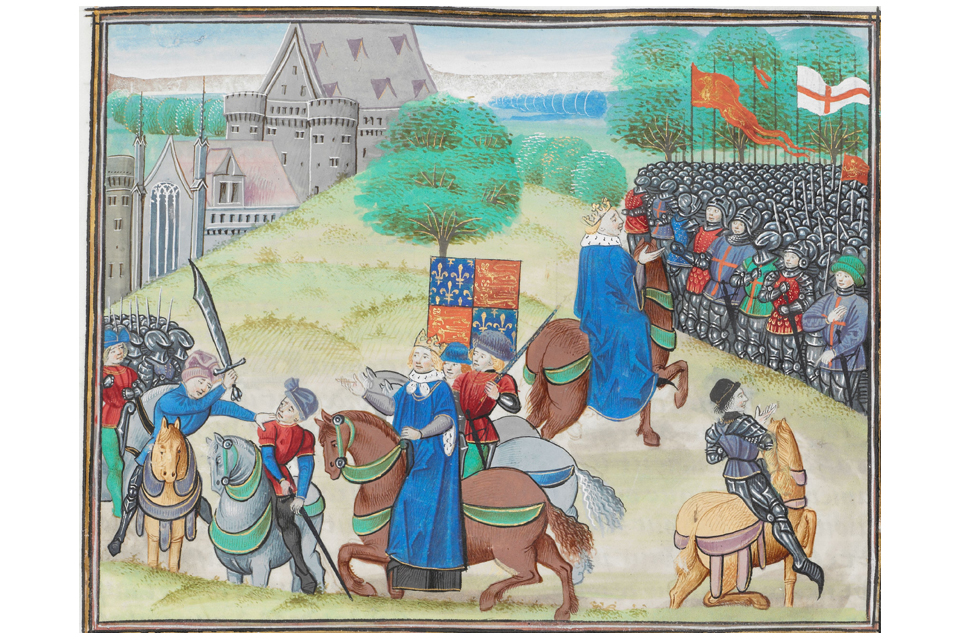The Hundred Years War caused an expansion of a vast literary corpus of chronicles, poetry, and plays. New book charts this literature and presents long forgotten texts.
The origin of the Hundred Years War was the dynastic troubles, which unfolded in France after 1314 and which led fight between France and England for the supremacy of France. Out of the warring grew a substantial nationalistically inclined literature. New book charts the development of a vast corpus of literature putting words to both chivalry and misery.
The Hundred Years War in Literature, 1337-1600
Joanna Bellis
Boydell & Brewer 2016
ISBN: 9781843844280
ABSTRACT:
 The Hundred Years War was central and paradoxical for the writing of English history, simultaneously galvanising pugnacious articulations of nationalism and exposing their bankruptcy. However, the conflict remains a sticking point in scholarship of medieval multilingualism and its complex relationship to nationalism, often overlooked in calls for a “post-national” vocabulary.
The Hundred Years War was central and paradoxical for the writing of English history, simultaneously galvanising pugnacious articulations of nationalism and exposing their bankruptcy. However, the conflict remains a sticking point in scholarship of medieval multilingualism and its complex relationship to nationalism, often overlooked in calls for a “post-national” vocabulary.
This book charts the narration of the war in English literature, from contemporary chroniclers and poets, such as Chaucer, documenting the conflict that dominated the fourteenth and fifteenth centuries, to later polemicists and playwrights looking back on their medieval past, including Shakespeare. It explores how its propagandists navigated its cultural minefields, and then how their mythologisations became ciphers for Tudor expressions of nationalism. Challenging the periodisation that habitually divides the medieval from the early modern, it shows how an event of the magnitude and longevity of the Hundred Years War shaped ways of thinking about English history and language from Chaucer and Lydgate to Spenser and Shakespeare. It also brings to light a rich and neglected corpus of Hundred Years War literature, from anonymous chroniclers and balladeers to agonising eyewitness accounts.
TABLE OF CONTENTS:
- Introduction
- ‘When the world woxe old, it woxe warre olde’: history, etymology and national identity, 1066-1337
- ‘To destroy and ruin the whole English nation and language’: the chronicles of the Hundred Years War
- ‘God gyue you quadenramp!’: mimetic language in the war poetry of the fourteenth and fifteenth centuries
- ‘The brightnesse of braue and glorious words’: language and war in the sixteenth century
- ‘Talk not of France, sith thou hast lost it all’: the Hundred Years War on the stage in the 1590s
- Conclusion
- Bibliography
ABOUT THE AUTHOR:
Joanna Bellis is the Fitzjames Research Fellow in Old and Middle English at Merton College, Oxford.
FEATURED PHOTO:
The Revolt of the Peasants in 1381. London, British Library, MS Royal 18 E. I, f. 165v.
